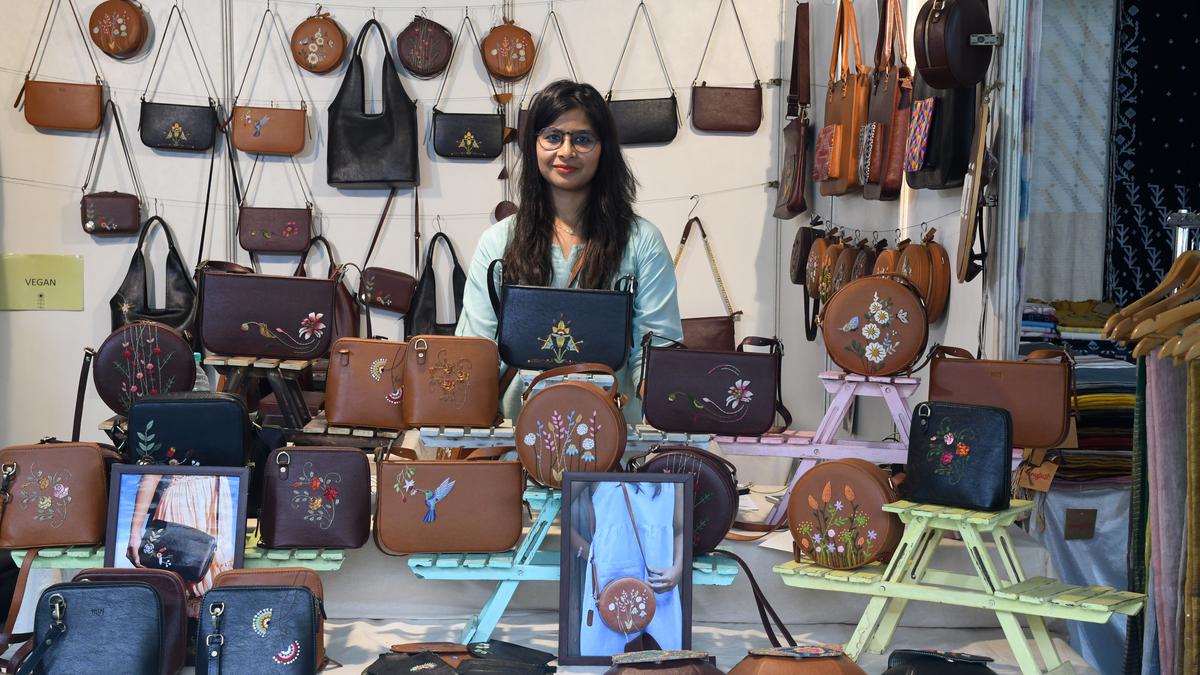
United by craft
The Hindu
After a gap of three years, the Dastkar Exhibition is back in Chennai.
After three years, the Dastkar Bazaar is back with over 100 craft entrepreneurs from 16 Indian states.
Discussing how this edition is especially important to the artisans, Shelly Jain, head of programmes at Dastkar, explains how many of them struggled to find customers and work through the pandemic.
The fair has 105 stalls and features a wide range of textiles from West Bengal, Gujarat, Maharastra, Karnataka and Andhra Pradesh. From Kashmir, this year for the first time, there are pashmina shawls. The collective Naie Kiran from Jammu, spearheaded by Zaheeda Amin which employs over 100 women, has array of dupattas, dress materials, saris and pashmina shawls. Imitaz Ahmed Khan at the stall says that they use only hand woven textiles from various states on which the women do embroidery.
Minnie Dissoria, the founder of Miri, holds up her handbags, made with faux leather, and hence vegan and cruelty-free “Lucknow Mukaish embroidery, aari work, zardosi and tribal embriodery are used on these bags so they look unique,” says Minnie.
At the stall selling DIY traditional art kits, there are educational kits (₹ 330) that teach kids about the courses of five major rivers of India such as Brahmaputra, Ganga, Yamuna, Kaveri and Godavari. There is also a doll making kit with material to create dolls, representing Kerala, Punjab, Bengal and Gujarat.
Thangka painting artist Tenzin Lama patiently explains how over 22 artists from Ladakh and Himachal Pradesh have created the works displayed at his stall. Thangka is a Tibetan Buddhist painting on cotton, silk appliqué, usually depicting a Buddhist deity, scene, or mandala. Similarly, Pichwai artist Mukul Joshi, who belongs to the seventh generation of artists in his family, proudly explains how his art dates back to many centuries. Besides him, Gond artist Gariba Singh Tekam holds up huge cheery canvases covered in intricate paintings inspired by the forests around his home.
Artists Mukesh Kumar and Rakesh Kumar Soni from Jaipur are Meenakari experts. What makes Narsinghdas Maheshchand Meenakar and Sons unique is its intricate design work which is a curious overlap of traditional and modern designs. On display are earrings, cufflinks, necklaces, bangles, chokers, and shirt buttons which are ornate, delicate, and weightless. Mukesh explains, “Meena comes in glass form, we reduce it to powder, wash it and graft it on metal which is then melted at 800 degrees. this process is repeated 5 times. “ The artist believes in fusing traditional elements of kundan/jaraw jewellery with modern designs that are lightweight and more ‘contemporary’.













